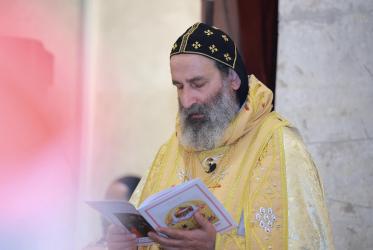Displaying 1 - 20 of 61
WCC in Indonesia: Commitment, colours, and collaboration
05 February 2024
Blending local and global ecumenism in Asia
02 November 2023
WCC hosts visitors from Finland, Germany, and Sweden
29 September 2023
At G20 Religion Forum, religious leaders call for global peace
07 November 2022
Tutu’s legacy: A Zoom panel celebrating “the Arch”
03 February 2022
WCC honoured with Geneva Engage Award
01 February 2022


















